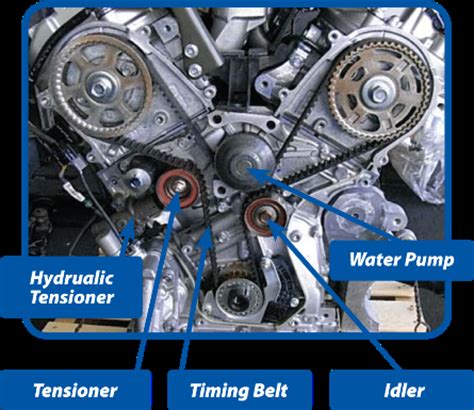
Automotive timing belts are an essential part of a vehicle’s engine system. The timing belt is responsible for synchronizing the rotation of the engine’s camshaft and crankshaft, ensuring that the engine’s valves open and close at the correct time, and that the pistons move in sync with the engine’s operation. Over time, timing belts can become worn, damaged, or stretched, which can lead to engine malfunctions and potentially catastrophic damage. That’s why it’s essential to replace a timing belt when necessary.
The replacement interval for a timing belt varies depending on the make and model of the vehicle, as well as the manufacturer’s recommendations. In general, most timing belts should be replaced between 60,000 and 100,000 miles. However, some newer vehicles may have longer replacement intervals, and some older vehicles may require more frequent replacements.
Replacing a timing belt can be a complex and time-consuming process, which is why it’s often best left to a professional mechanic. The mechanic will first inspect the timing belt for signs of wear, damage, or stretching. If the timing belt is still in good condition, they may recommend waiting until the next scheduled replacement interval. However, if the timing belt is worn, damaged, or stretched beyond its limits, they will recommend replacing it.
During the replacement process, the mechanic will first remove the old timing belt and inspect the timing components, such as the water pump and tensioner. If any of these components show signs of wear or damage, they may need to be replaced as well. Once the timing components are inspected and replaced (if necessary), the new timing belt is installed and properly tensioned. The mechanic will then test the engine to ensure that it’s running smoothly and that the timing belt is properly synchronized with the engine’s operation.
It’s essential to replace a timing belt when necessary to prevent engine damage and ensure that your vehicle is running smoothly. While the replacement process can be costly and time-consuming, it’s a small price to pay for the peace of mind that comes with knowing that your engine is running properly. Be sure to follow your vehicle manufacturer’s recommended timing belt replacement interval, and don’t hesitate to consult with a professional mechanic if you suspect that your timing belt may need to be replaced.
If you’re vehicle is due for timing belt maintanance and you live in the Youngsville, Wake Forest, Rolesville, Franklinton, or Louisburg area, simply reach out to us at 919-556-4488 or text us at 919-804-1180 for a hassle-free appointment. Our team is equipped to address any engine timing related problems you may encounter. Don’t compromise on safety—let our experts provide reliable timing belt replacement services tailored to your needs. Contact us today and trust us to get you back on the road with confidence.